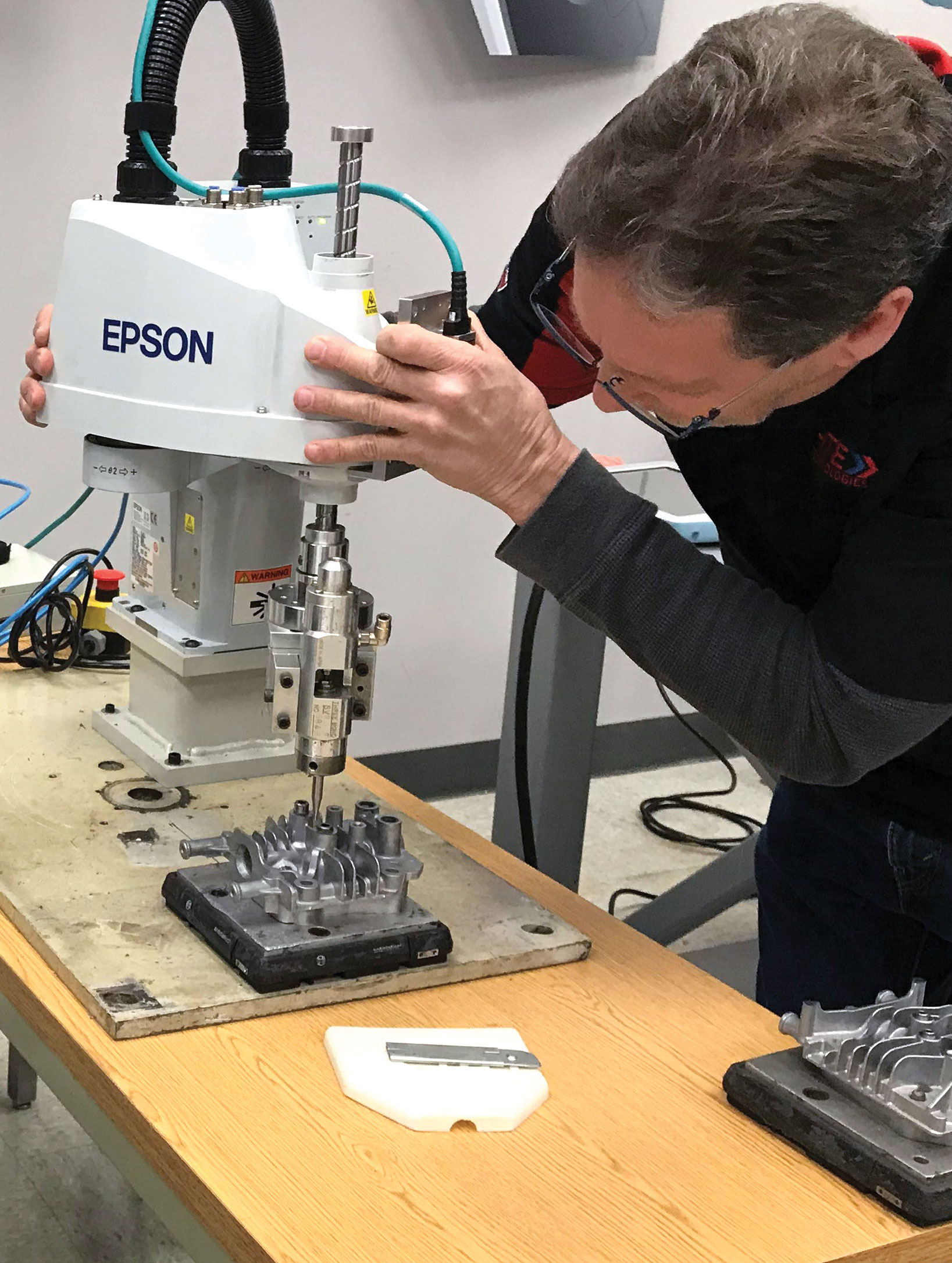MANUFACTURING ROBOTICS

Manufacturers who introduce robotics into their production lines, material handling processes, plant logistics, or other vital areas can improve safety, accuracy, repeatability, and consistency, all of which decrease the cost to produce a product.
Those improvements then lead to a reduction in cycle-times and scrap, improved product quality, and a much faster speed-to-market. These are the things that differentiate manufacturers who are thriving and growing, from those that are struggling to make ends meet.
INCREMENTAL AUTOMATION
Just a few years ago, to realize such gains required existing processes to be completely overhauled in a major, disruptive, and expensive project, but as the collaborative robot industry has matured, it has provided manufacturers with the tools to target constraints, or process chokepoints, and apply incremental automation to those problem areas. In the process, skilled employees are relieved of having to perform highly repetitive, boring tasks, leading to a happier, more engaged staff, and lower employee turnover.
It is in these application-specific, rather than system-wide, automation integration projects that HTE Automation excels. In applications where Universal Robots’ collaborative robots meet the speed, precision, payload demands, but where workers are optimally placed next to the robot, HTE is the regional leader, with broad and safe experience implementing collaborative robots in many industries during the past 8 years.
 FACTORY ROBOTS
FACTORY ROBOTS
The tasks being performed by our cobots vary greatly, but broadly speaking, include pick and place, palletizing, packaging, machining, press tending, gluing and sealing, polishing and sanding, fastening, loading and unloading, assembly, and inspection.
The industries in which HTE's Value-added services team has implemented collaborative robots include: Chemicals and Allied Products, Electrical Equipment, Fabricated Metal Products, Food Production, Food Packaging, Machinery, Manufacturing Equipment, Miscellaneous Components, Office Furniture, Pharmaceuticals, Plastics, Primary Metals, Publishing, Sports Equipment, Transportation Equipment & Parts, Warehouse Management, and Wood Products.
When it comes to large integration projects involving our traditional Epson robots, HTE works with customers to fully understand the project goals, get to know the resident robotics talent, discuss the level of outside support that will be needed, and establish a clear understanding of the customer’s time-line requirements. From there our team can help to plan out the implementation, select the optimal Epson robots, and if required, connect the customer to a local robotics integrator who can provide start-to-finish integration services. HTE’s integration services for traditional robots are limited to start-up commissioning and programming Epson robots, including re-tasking them later as requirements change, and programming operational PLCs and safety PLCs.
WAREHOUSE ROBOTS

The repetitive movement of parts, sub-assemblies, and finished goods around the production floor can be a dangerous activity as workers push or drive carts and fork trucks for long-periods and become weary or distracted. In some production lines, assembly workers leave their stations to replenish parts or move finished goods, slowing the production line.
Using integral laser scanners and intelligent software, autonomous mobile robots can adapt on-the-fly to factory floor or warehouse conditions, calculating and recalculate as necessary, the quickest safe route to deliver items to a targeted station. HTE Automation works with specialist AMR integrators who, together with our team can safely deliver significant efficiency improvements to your plant logistics.
HTE Automation's TECHTEAM provides light, incremental, automation integration services to manufacturers in Kansas, Missouri, and Illinois. To learn how we can serve you, please call us at 800-444-4831, or email us at marketing@htetech.com.

 Manufacturers who introduce robotics into their production lines, material handling processes, plant logistics, or other vital areas can improve safety, accuracy, repeatability, and consistency, all of which decrease the cost to produce a product.
Manufacturers who introduce robotics into their production lines, material handling processes, plant logistics, or other vital areas can improve safety, accuracy, repeatability, and consistency, all of which decrease the cost to produce a product.
 FACTORY ROBOTS
FACTORY ROBOTS